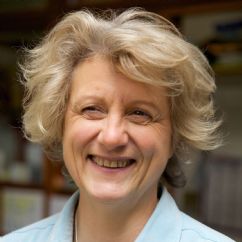Bryanston's Education Summit 2023: Not drowning but waving
In our latest blog post, Education Summit Director Stephen Davies explores the benefits of taking a day away from the cl...
Read MoreIn her guest blog this week Edrys Barkham explains why we don’t pre-test as part of the admissions process at Bryanston.
 Key factors affecting a child’s academic performance are their attitude to their own learning, parental interest and engagement, and their teachers’ belief that they can improve academically. Intelligence and personality are determined by an interaction between our genes and our environment. Biologists and psychologists are continually debating the nature-nurture question, but the general consensus is that genes and environment combine to give us our intelligence. Our experiences affect our genetic make-up and our genes affect our responses to the environment. I’m not sure it really matters whether we pinpoint the exact contribution each makes, the key thing is to understand that if children believe they can change their outcomes, then they are more likely to do so.
Key factors affecting a child’s academic performance are their attitude to their own learning, parental interest and engagement, and their teachers’ belief that they can improve academically. Intelligence and personality are determined by an interaction between our genes and our environment. Biologists and psychologists are continually debating the nature-nurture question, but the general consensus is that genes and environment combine to give us our intelligence. Our experiences affect our genetic make-up and our genes affect our responses to the environment. I’m not sure it really matters whether we pinpoint the exact contribution each makes, the key thing is to understand that if children believe they can change their outcomes, then they are more likely to do so.
It may seem obvious, but children need to have what Professor Carol Dweck of Stanford University calls an ‘open mindset’, which is a fundamental belief that their intelligence and their academic performance can be improved by their own effort. At Bryanston we focus as much on the pupil’s effort as the grade and tutorial conversations revolve each week around the effort marks pupils have achieved. How much time did they spend on their work, how much research did they do, where do they work best – these are all explored to help pupils realise they are in control of their work habits. As a result they discover how they can improve their outcomes.
In a world where assessment has become a tick box exercise and academic decision-making is increasingly based on scores and percentiles, we believe that children should be treated as individuals and all aspects of a child should be considered in the admissions process. Selecting the right children is not an easy process; all children have so much potential and a wide range of talents to offer, so it can be hard to work out who will gain the most from a Bryanston education. Perhaps we make it more difficult for ourselves by selecting children on careful, thorough, subjective criteria, rather than by a simple number achieved in a pre-test.
Can you tell all you need to know about a child’s academic potential at the age of 12? We think that many children are still developing in years 6 and 7 and by allowing them longer to mature and getting to know them as they develop, we can admit children who are likely to thrive at Bryanston and will bring to the school a breadth of skills that reach beyond the classroom. And all this without pre-testing!
We rely on the professional opinion of the heads of prep schools and other junior schools, most of whom know us well, through pupils they have previously sent to Bryanston, and they know their own pupils very well. We trust that they have a good sense of their pupils’ likely performance in Common Entrance (or our own entrance exam if theirs is a school which does not prepare for Common Entrance) and whether they believe each individual child will thrive with us. If there is doubt we then offer an informal pre-assessment in order to make sure that we have the appropriate support structures that will enable that child to reach their full potential with us. We would be remiss if we were to admit a child we knew would be unlikely to cope with our academic system in terms of either attitude or aptitude.
We celebrate a broad and diverse intake every year and it is that, along with our one to one tutorial system, which makes us such a vibrant and exciting school in which to learn and grow.